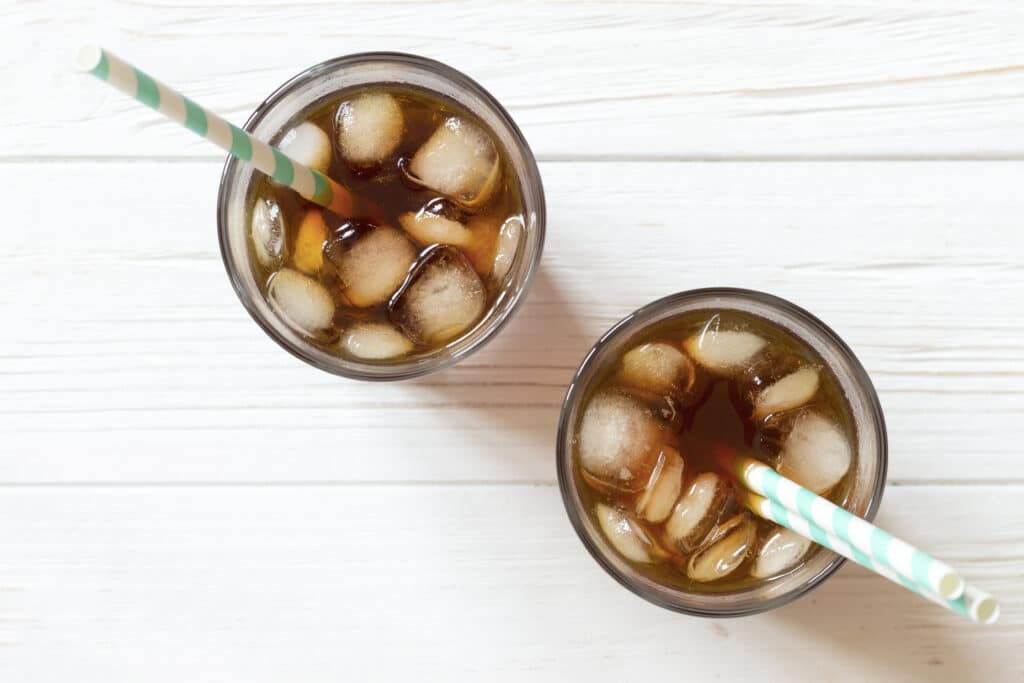We’ve all heard that paper straws and other alternatives are better for us than plastic. But is it all as rosy as it seems? Today, we unveil the hidden aspects of this issue and bring to light some surprising alternatives to plastic straws.

What are PFAS, and Where Do They Lurk?
Recent findings have revealed a disturbing truth – paper and bamboo straws sometimes contain possibly harmful substances called PFAS (polyfluoroalkyl and perfluoroalkyl substances). These artificial chemicals can pose serious health and environmental risks because they are highly persistent. Today, we can find PFAS in items like food packaging, cosmetics, firefighting foams, pesticides, outdoor clothing, and more due to their water-resistant properties.
The Troubling Reality of PFAS Contamination
While the EU banned the most common PFAS, perfluorooctanoic acid, in 2020, the world is still dealing with the consequences. These chemicals have seeped into the soil, contaminating plants that end up on our plates or products. Even recycled products carry the legacy of PFAS, making them a hidden danger in our daily lives.
Paper Straws and the Perils of PFAS Ingestion
Paper straws dissolve when they come into contact with liquid. As we nervously chew on them, we unknowingly ingest bits of paper. Imagine the impact, especially when our children sip through paper straws. The truth is, with each chew, we consume PFAS. Moreover, recent research suggests that mere contact with PFAS-laden products or breathing contaminated air could be unsafe. But what makes these chemicals so hazardous?

The Broader Impact of PFAS Exposure
Startling research indicates that pregnant women exposed to PFAS may face fertility issues and elevated blood pressure. Recent events have also linked PFAS exposure to a reduced ability to tolerate COVID-19. Furthermore, children born to mothers exposed to PFAS have an increased risk of underdevelopment and experiencing cancer in their adolescence. Birds and other species have not escaped this challenge either with PFAS affecting their fertility, immune response, and kidney function.
Surprising Revelations: PFAS in Various Straw Brands
A comprehensive survey revealed a concerning reality. PFAS compounds were found in straws from 5 out of 8 paper straw manufacturers and even in one bamboo straw. Despite this, the source of PFAS in these straws remains a mystery, sparking ongoing investigations.
Exploring Safer Paper Straw Alternatives
The solution to this challenge might lie in straws that don’t contain PFAS or break down in beverages, thus preventing the release of toxic substances into our bodies. Options like Refork straws or stainless steel straws come to the forefront. However, it’s worth noting that stainless steel products might contain other risky substances, such as heavy metals. In contrast, Refork drinking straws are made from 100% nature-friendly materials, so they’re safe for you and the environment. We use a special type of material that’s often used in medical applications, like implants. It’s a leading choice for food products, and it’s designed to be biodegradable, meaning it breaks down naturally. Plus, it hasn’t been changed or altered chemically, so it’s as close to nature as it can be.
Strengthening Regulations for a Safer Environment
To make real change, it’s crucial to enhance our regulatory framework. This involves, firstly, stricter enforcement of existing laws and, secondly, the introduction of new legislation aimed at reducing or removal of persistent, bioaccumulative, and hazardous substances. Only through these robust regulatory measures can we properly protect public health and the environment, thereby reducing the financial and health consequences of pollution for current and future generations.
Conclusion
In conclusion, the quest for eco-friendly straw alternatives is a complex challenge. Recent studies have revealed the presence of PFAS in seemingly eco-friendly paper and bamboo straws, highlighting the need for comprehensive regulatory changes. These persistent and widespread substances pose health risks and long-term consequences. Upholding current regulations and introducing new legislation is the only effective way to address this issue. These measures are essential to protect public health, preserve the environment, and reduce the burden of pollution on present and future generations.
